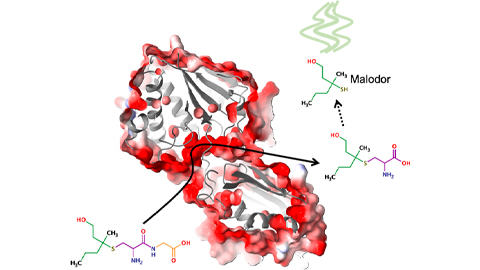JLR: Which oil is best for your health?
If you’ve ever gotten confused trying to keep up with nutrition research, you’re not alone. The field is big, and news reports often consider each study in isolation. Even if you’re familiar with the literature, studies can be hard to compare because of differences in design, duration, sample size and effect size.

Lukas Schwingshackl, a researcher at the German Institute of Human Nutrition, is among a wave of scientists using sophisticated statistical tools to reduce uncertainty about what the mountain of data in the nutrition literature can tell us. In a paper published in the Journal of Lipid Research, Schwingshackl and colleagues used an emerging technique called network meta-analysis to extract insight from published studies on the effect of various dietary oils on blood lipids.
If you want to lower your low-density lipoprotein cholesterol, or LDL, the research is clear about one thing: You should replace saturated fats with unsaturated fats. If you want to know exactly which fat is best, that’s a harder question. Many of the studies establishing that mono- and polyunsaturated fats are better for blood lipids than saturated fats swapped out one food source at a time, making it hard to tell which of a plethora of vegetable oils might be most beneficial.
To get around the fact that there has been no giant study comparing all available oils, Schwingshackl’s team constructed a network meta-analysis showing how different oils and solid fats have been matched up. The researchers rounded up 55 randomized intervention trials dating to the 1980s that assessed the effects on participants’ blood lipids of consuming the same number of calories from different oils or fats. To be included in the analysis, a study had to compare the effect of two or more oils or fats (from a list of 13) on patients’ LDL or other blood lipids, such as total cholesterol, HDL-cholesterol or triglycerides, over at least three weeks.
Suppose both butter and sunflower oil had been tested against olive oil. The statistical approaches of network meta-analysis would allow the team to infer a quantitative comparison between butter and sunflower oil even if they had never faced off in the clinic. Schwingshackl explained, “The beauty of this method is that you can compare a lot of different interventions simultaneously … and, in the end, you get a ranking. You can say, ‘this is the best oil for this specific outcome.’”
In this study, the final ranking indicated that, as your doctor has told you for years, solid fats like butter and lard are the worst choice for keeping LDL low. The best alternatives are oils from seeds.
“Sunflower oil, rapeseed oil, safflower oil and flaxseed oil performed best,” Schwingshackl said. “Some people from Mediterranean countries probably are not so happy with this result, because they would prefer to see olive oil at the top. But this is not the case.”
The research comes with a few important caveats. For starters, it measured only blood lipids. “This is not a hard clinical outcome,” said Schwingshackl. “LDL is a causal risk factor for coronary heart disease, but it’s not coronary heart disease.”
However, he said, it might be difficult to conduct a study comparing those clinical outcomes — for starters, someone would need to find study participants willing to eat just one type of fat for years at a time.
Meta-analyses run the risk of misleading by combining several pieces of low-confidence data into a falsely confident-sounding ranking. In this case, for example, there was not enough evidence to choose a “winner” among the seed oils with confidence. What’s more, the oils best at lowering LDL were not the most beneficial for triglycerides and HDL cholesterol. However, with the appropriate caveats in mind, Schwingshackl is optimistic about the potential for network meta-analysis to help researchers synthesize disparate clinical studies.
Enjoy reading ASBMB Today?
Become a member to receive the print edition four times a year and the digital edition monthly.
Learn moreGet the latest from ASBMB Today
Enter your email address, and we’ll send you a weekly email with recent articles, interviews and more.
Latest in Science
Science highlights or most popular articles

Defeating deletions and duplications
Promising therapeutics for chromosome 15 rare neurodevelopmental disorders, including Angelman syndrome, Dup15q syndrome and Prader–Willi syndrome.

Using 'nature’s mistakes' as a window into Lafora disease
After years of heartbreak, Lafora disease families are fueling glycogen storage research breakthroughs, helping develop therapies that may treat not only Lafora but other related neurological disorders.

Cracking cancer’s code through functional connections
A machine learning–derived protein cofunction network is transforming how scientists understand and uncover relationships between proteins in cancer.

Gaze into the proteomics crystal ball
The 15th International Symposium on Proteomics in the Life Sciences symposium will be held August 17–21 in Cambridge, Massachusetts.

Bacterial enzyme catalyzes body odor compound formation
Researchers identify a skin-resident Staphylococcus hominis dipeptidase involved in creating sulfur-containing secretions. Read more about this recent Journal of Biological Chemistry paper.

Neurobiology of stress and substance use
MOSAIC scholar and proud Latino, Bryan Cruz of Scripps Research Institute studies the neurochemical origins of PTSD-related alcohol use using a multidisciplinary approach.

